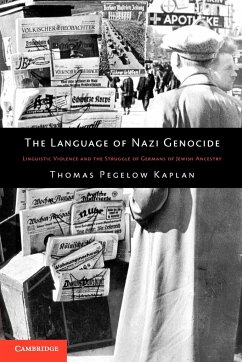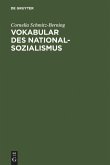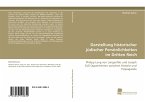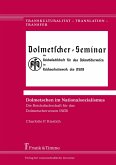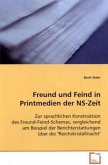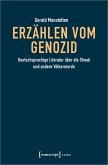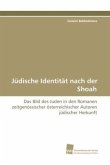In the Nazi genocide of European Jews, words preceded, accompanied and made mass murder possible. Thomas Pegelow Kaplan analyzes the role of language in genocide, examining how the perpetrators constructed difference; how Nazi agencies communicated to the public; and how Germans of Jewish ancestry struggled for survival and self. In the Nazi genocide of European Jews, words preceded, accompanied, and made mass murder possible. Using a multilayered approach to connect official language to everyday life, historian Thomas Pegelow Kaplan analyzes the role of language in genocide. This study seeks to comprehend how the perpetrators constructed difference, race, and their perceived enemies; how Nazi agencies communicated to the public through the nation's press; and how Germans of Jewish ancestry received, contested, and struggled for survival and self against remarkable odds. The Language of Nazi Genocide covers the historical periods of the late Weimar Republic, the Nazi regime, and early postwar Germany. However, by addressing the architecture of conceptual separation between groups and the means by which social aggression is disseminated, this study offers a model for comparative studies of linguistic violence, hate speech, and genocide in the modern world.
Hinweis: Dieser Artikel kann nur an eine deutsche Lieferadresse ausgeliefert werden.
Hinweis: Dieser Artikel kann nur an eine deutsche Lieferadresse ausgeliefert werden.

